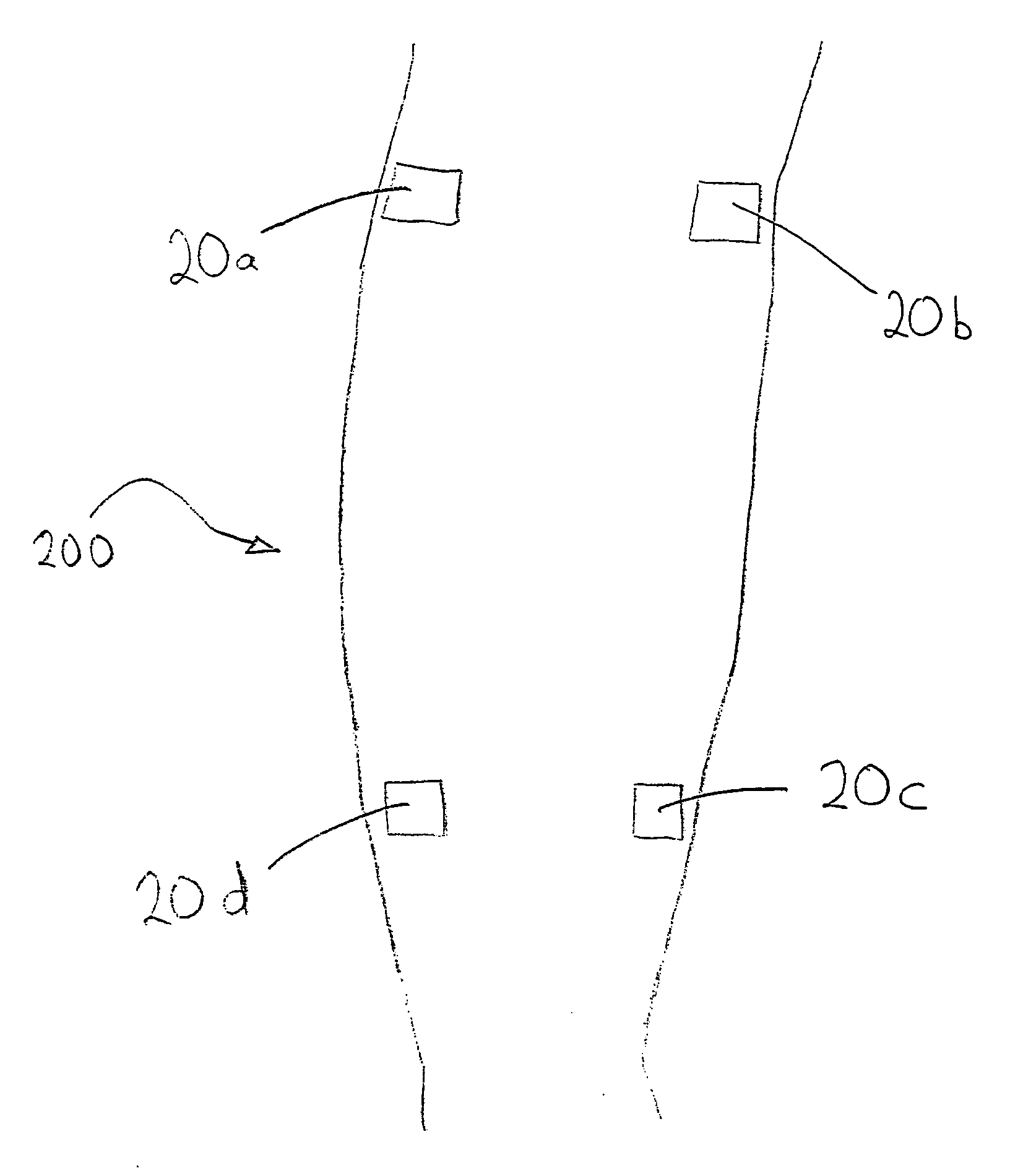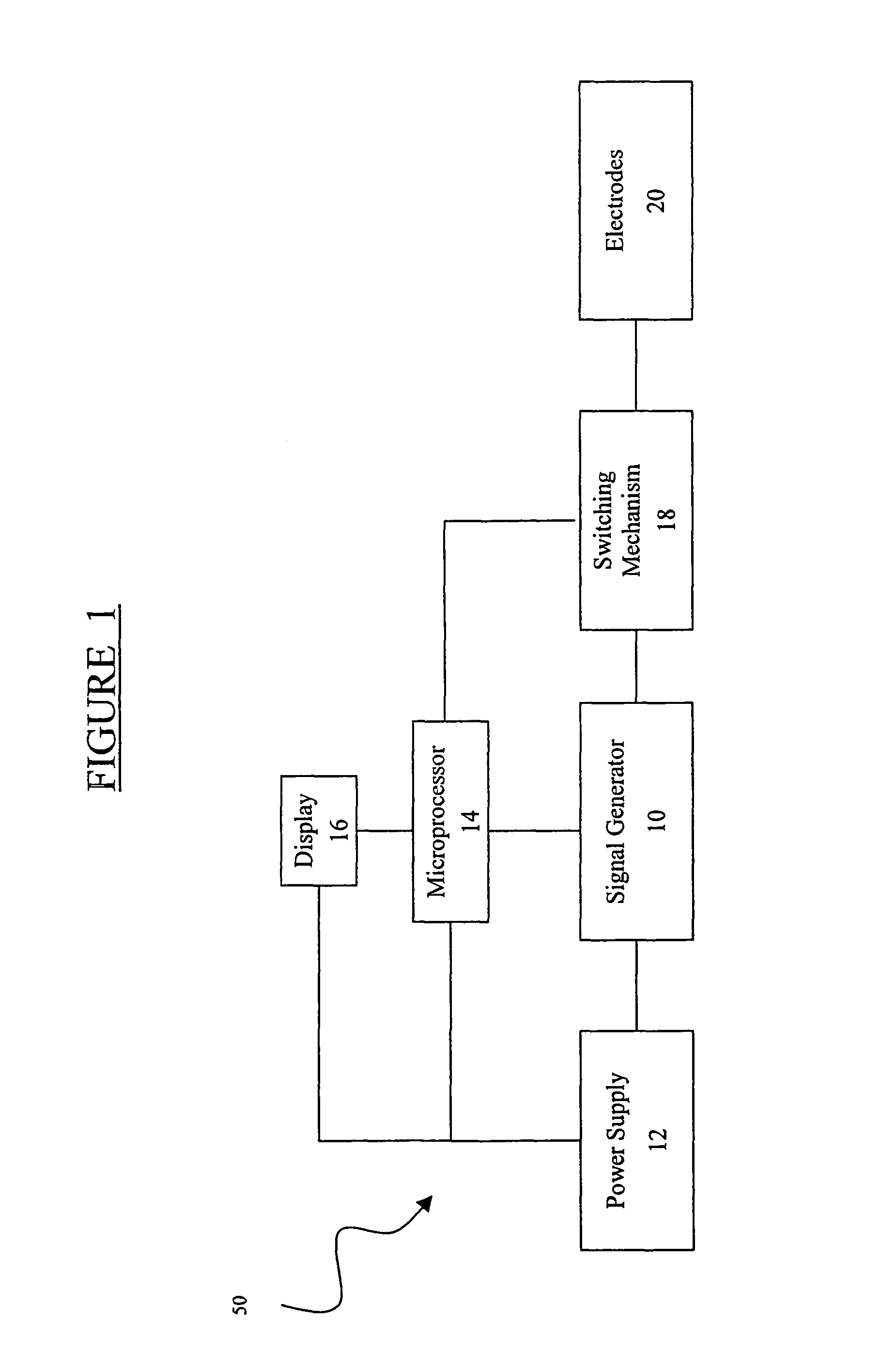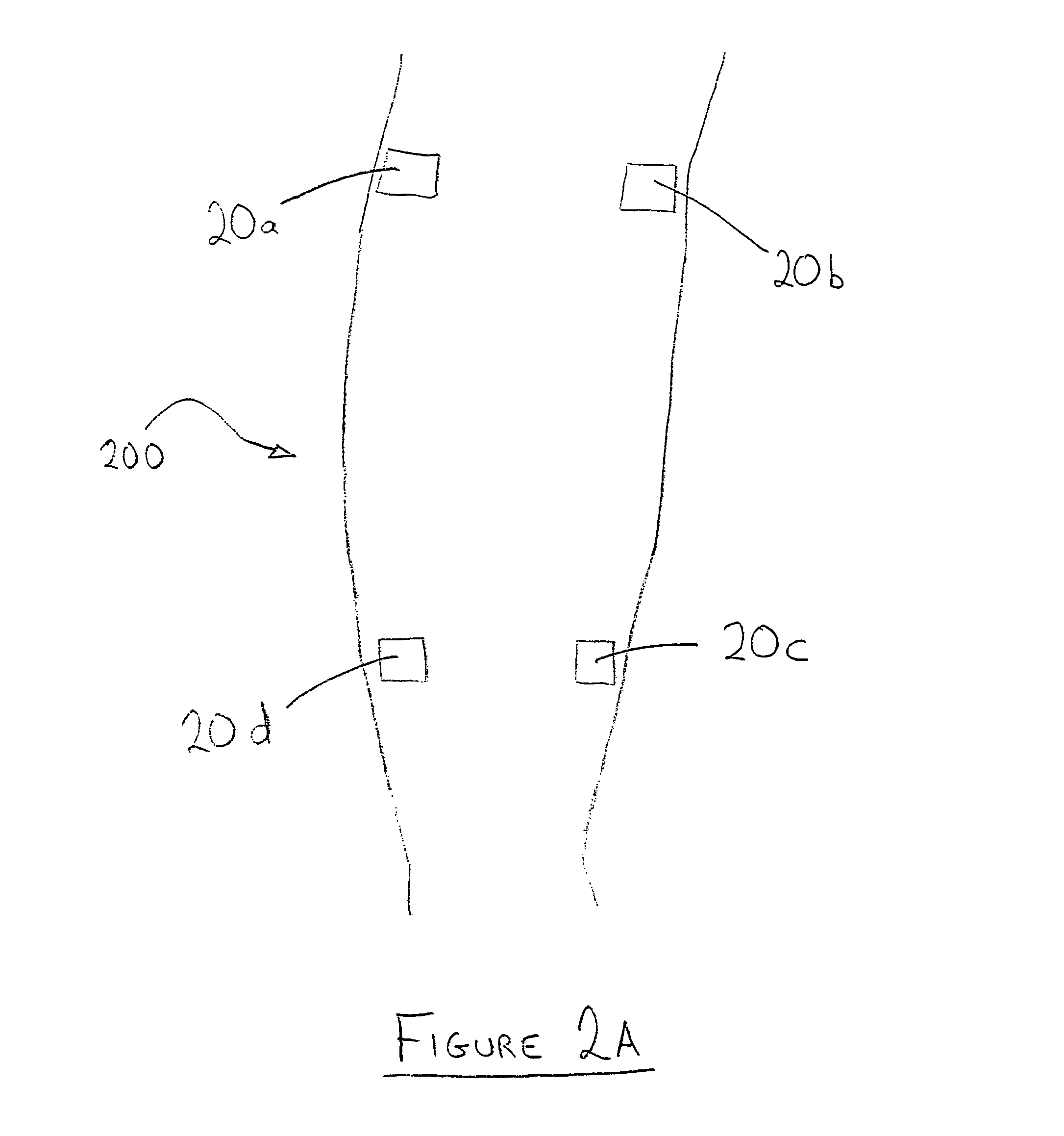Method and device for enhanced blood flow
a technology of enhanced blood flow and localized change, applied in electrotherapy, therapy, etc., can solve the problems of insufficiently standardized prescription form, extremely limited improvement in blood circulation, and modest increase in blood circulation, and achieve the effect of promoting a localized change in blood flow
- Summary
- Abstract
- Description
- Claims
- Application Information
AI Technical Summary
Benefits of technology
Problems solved by technology
Method used
Image
Examples
example 1
[0081]A conventional Transcutaneous Electrical Nerve Stimulation (TENS) device was used to provide electrical stimulation to the lower leg of a patient suffering from poor circulation in the foot. A first surface electrode of the device was positioned underneath the knee, and a second electrode of the device was positioned above the calf. Electrical stimulation was administered for over 60 minutes. A FLIR™ ThermaCAM® EX320 was used to thermally monitor the foot and lower calf. In particular, three locations on the leg were monitored:
[0082](1) a point on the big toe;
[0083](2) a point on the instep;
[0084](3) a point on the lower calf.
[0085]Thermographs recorded intermittently during the course of the stimulation treatment are provided in FIGS. 5A-5D. Initially, the lower leg and calf regions, including lower calf point 3, are at a temperature of 33-34 C; the instep, including instep point 2, is at a temperature of 33-34 C; big toe point 1 is at 28.5 C. After about 30 minutes, the temp...
example 2
[0087]A device of the present invention was used to provide electrical stimulation to the lower leg of a patient suffering from poor circulation in the foot. Two surface electrodes of the inventive device were positioned underneath the knee, and an additional two surface electrodes of the device were positioned above the calf, substantially as shown in FIG. 2A. The microprocessor used for controlling the device was an ATMEL® 8 bit AVR® microcontroller, model no. ATmega8535, which also contains the signal generator unit.
[0088]Electrical stimulation was administered for over 60 minutes. As in Example 1, a FLIR™ ThermaCAM® EX320 was used to thermally monitor the foot and lower calf. In particular, three locations on the leg were monitored:
[0089](1) a point on the big toe;
[0090](2) a point at the base of the big toe;
[0091](3) a point on the instep.
[0092]Thermographs recorded intermittently during the course of the stimulation treatment are provided in FIGS. 7A-7F. In the first thermogra...
PUM
 Login to View More
Login to View More Abstract
Description
Claims
Application Information
 Login to View More
Login to View More - R&D
- Intellectual Property
- Life Sciences
- Materials
- Tech Scout
- Unparalleled Data Quality
- Higher Quality Content
- 60% Fewer Hallucinations
Browse by: Latest US Patents, China's latest patents, Technical Efficacy Thesaurus, Application Domain, Technology Topic, Popular Technical Reports.
© 2025 PatSnap. All rights reserved.Legal|Privacy policy|Modern Slavery Act Transparency Statement|Sitemap|About US| Contact US: help@patsnap.com



